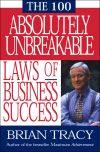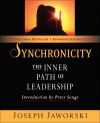Правообладателям!
Представленный фрагмент книги размещен по согласованию с распространителем легального контента ООО "ЛитРес" (не более 20% исходного текста). Если вы считаете, что размещение материала нарушает ваши или чьи-либо права, то сообщите нам об этом.Читателям!
Оплатили, но не знаете что делать дальше?
Текст бизнес-книги "How to Win Arguments"
Автор книги: Robert Allen
Раздел: Жанр неизвестен
Текущая страница: 1 (всего у книги 3 страниц)


Copyright
Thorsons
An imprint of HarperCollinsPublishers Ltd.
1 London Bridge Street
London SE1 9GF
www.harpercollins.co.uk
First Published by Thorsons 1996
Copyright © Robert Allen 1996
Robert Allen asserts the moral right to be identified as the author of this work
A catalogue record for this book is available from the British Library
All rights reserved under International and Pan-American Copyright Conventions. By payment of the required fees, you have been granted the nonexclusive, non-transferable right to access and read the text of this ebook on screen. No part of this text may be reproduced, transmitted, downloaded, decompiled, reverse engineered, or stored in or introduced into any information storage retrieval system, in any form or by any means, whether electronic or mechanical, now known or hereinafter invented, without the express written permission of HarperCollins ebooks
HarperCollinsPublishers has made every reasonable effort to ensure that any picture content and written content in this ebook has been included or removed in accordance with the contractual and technological constraints in operation at the time of publication
Source ISBN: 9780722531594
Ebook Edition © OCTOBER 2016 ISBN: 9780008226954
Version: 2016-10-14
Contents
Cover
Title Page
Copyright
INTRODUCTION – Heated Exchanges
CHAPTER 1 Things You Should Know
What makes an argument?
Elements of an argument
Types of argument
‘Every question has two sides.’
Arguments in other cultures
Victories are not solutions
When not to argue
CHAPTER 2 Things You Can Do to Win
Offensive tactics
Defensive tactics
CHAPTER 3 Levelling the Playing Field
Scales
Setting and set
Psychology
Transactional analysis
References and Further Reading
About the Author
About the Publisher
INTRODUCTION
Heated Exchanges
How good are you at getting your own way? Do you usually persuade people to do what you want or do you sometimes feel that you get put upon by others who have greater powers of persuasion? The subject is, of course, a delicate one. In theory ‘getting your own way’ is rather frowned upon and our parents and teachers always discouraged us from being too pushy. However, there will always be ruthlessly ambitious people who have no qualms about pushing others around to get what they want out of life. Unless we live a life of total seclusion, we are bound to come up against such people, and must be prepared to deal with them if we don’t want to be pushed around ourselves. We may try to live a quiet life away from the fighting, but those of us with goals and ambitions are unlikely to achieve them without stepping into the ring. The rules of the playground, though uncivilized, dominate our lives to the grave.
As humans we live, work and play together in social groups such as families, firms, institutions and nations, all in social cooperation with each other. However, we are, each of us, autonomous: we have free will. And like other animals, even social animals, we are competitive. How does the autonomous individual seek to influence the behaviour of the social group? By argument. We seek to persuade others to our point of view. However, as we all know, that is a bland description of a process that is, in practice, decidedly colourful. For human nature dictates that the process of persuasion is invested with such importance that when we are thwarted the result might be anything from mild frustration to anger, violence or even, in extreme cases, outright war. This makes argument, and how we can get our own way, a subject of compelling interest to us all.
The truth, unattractive as it may be, is that we all argue constantly. Much of this argument occurs at a fairly innocuous level and we therefore tend not to notice what we are doing. In any case, because we have been cautioned from our earliest years that loud, public disagreement is in bad taste, we often try to pretend it is not happening. We say things like, ‘We weren’t arguing; we were just discussing.’ If we come across people involved in an unseemly squabble (and we are conditioned to regard any quarrel not involving ourselves as unseemly), our usual reaction is to turn away. ‘I wasn’t going to get involved in an argument,’ we tell our friends later. The result is that argument, like death, is a subject we tend to avoid thinking about. This is a pity. For if the objective of argument is to persuade, then what we are doing is to make ourselves less effective persuaders. Also, as we shall see later, the process of argument is a uniquely human way of providing a safety valve for powerful feelings. Many animals indulge in threat displays that resolve conflict without risking damage to the participants, but humans who feel frustrated by the lack of cooperation shown by others can engage in a whole series of verbal manoeuvres before they resort to beating each other over the head with a brick. In societies where this safety valve is deliberately blocked, violence may be explosive and unpredictable.
So let’s cast aside our natural reluctance and take a good, hard look at how we argue. By studying the processes involved we may be able to learn to make ourselves more effective at using them. Perhaps we should take as our model the self-defence class. It is one of the basic principles of self-defence that, because you will not have time to think when you are actually attacked, you should prepare yourself in advance to the point where your reactions are fluent and automatic. Argument is often bound up with human aggression and with consequently heightened levels of emotion. It follows that we should practise before any dire necessity arises.
Arguments are never the verbal free-for-all we might assume. They are highly structured and there are many distinct categories, all with their own rules and tactics. It is possible to identify a number of elements in all arguments, including emotional content, concern for the truth, status of the participants and self-interest of the participants. However, the relative proportions of such elements in different types of argument can be a very important guide to the tactics that we should adopt in a given situation. This process of analysing arguments and learning in advance how to respond forms a large part of this book. We must understand that a tiff with our partner is different in both kind and scale from, say, a legal wrangle conducted in the courts. Both are arguments and will be carried on according to rules, but they will be as different from each other as Rugby Union and Rugby League. (As my former games master succinctly put it, ‘Same shaped ball, different games.’)
We shall look at tactics used in argument and learn how to make them work effectively for us. There is a whole section devoted to different tactics, both aggressive and defensive, that will help you argue better. They have been culled from witnessing many hours of actual argument and are recommended for their efficacy. We shall also look at the ‘dirty tricks’ of argument and see what can be done to guard against them. This brings me to an important point. Much of what goes on in argument is the sort of behaviour we are not proud of. It shows us at our worst and not as we would wish to see ourselves. When we argue, we may have all sorts of justifications for what we are doing, but the plain truth is that we are trying to get our own way. Quite often we do so directly at the expense of someone else and in the full knowledge that our victory may inflict damage on our opponent. I am merely commenting on how these ends are achieved. I am not recommending that you should suddenly adopt a repertoire of dodgy tactics and use them to bully and cajole those around you to do your will. Moral decisions about what is fair and what is not are left, at all times, up to you.
We are also going to consider what ‘winning’ and ‘losing’ really mean. It is interesting that we so often regard argument as a competition. In spite of all those earnest American scholars of Management Studies, with their talk of ‘principled negotiation’, most of the time we want to see a winner and a loser. But is it enough merely to outwit your opponent in a battle of verbal skill or do you require some specific result that will be to your advantage? The two aims are often incompatible. Also we have to bear in mind those oriental mystics who would sagely point out to us that, in many cases, losing (or appearing to lose) is winning. Actually this insight is not confined to Zen monks and Taoist sages – they share it with most women, especially the married ones.
This brings us to another point. Do men and women argue differently? Do they employ different tactics, argue about different things or have different concepts of what constitutes winning and losing? Are women happier than men to reach a consensus? These are some of the issues to which we shall be paying attention.
Also we shall look at the psychology of argument and, using techniques from a number of different disciplines, try to understand the mechanics at work when we argue. We shall devise strategies for a more effective use of arguing skills and try to use psychological insights to understand an opponent’s motives and strategy. In particular, the techniques of transactional analysis will be recommended as a means of understanding some of the forces at work in an argument.
I must also add a personal comment about self-help books. They have always bothered me. Surely the reader is entitled to ask, ‘Who is this person and what gives him the right to lecture me?’ It is a fair question and is seldom answered. You are expected to take the author on trust. My answer is this: I assume that since you are reading this book you feel that your arguing skills could do with improvement. Naturally bossy, assertive people are unlikely to have strayed further than the front cover. I am not a professional in the field of argument (though I do have some psychological training). I have made a study of argument because the subject fascinates me. Like most people I have often felt that I could have given a better account of myself in arguments and have regretted lost opportunities. However, the sort of writer who happily advises shy people to smile and offer a new acquaintance a friendly handshake is rather missing the point. If they were capable of doing that they would not be shy in the first place. So all the advice I intend to give is intensely practical and has been thoroughly researched and tested. If an idea has proved reliable I shall recommend it warmly, but where a particular tactic is of only marginal value I shall mention it with an appropriate ‘health warning’ attached. I am certain that you will not finish the book without having learned a number of skills that will improve your arguing ability significantly.
Although you will find a list of recommended books in the appendix these will not help you half as much as observing arguments for yourself. There is no problem about this, they are happening around us all the time. Any bus queue, crowded shopping centre, car park, railway station, TV debate, radio phone-in or playground squabble will provide you with ample opportunity to study. The art is to listen attentively and take a dispassionate interest in what is going on. This is a difficult habit for many of us to cultivate because we have such a deeply ingrained dislike of hearing people bicker. We know full well that we are only a hair’s breadth away from violence and our instinct is to put as much distance between ourselves and the cause of the trouble as possible. But try not to run away. Most arguments are merely ludicrous rather than threatening. Most of the anger is bluff and will never lead to blows. If you watch what is happening closely you will see that much of what is happening is ritualized and predictable. Once you understand the ritual you are well placed to control its direction. The techniques that are being used effectively by one arguer can be easily adapted for use by yourself. And because so few people bother to study argument properly you, who have taken the time to do so, will be in a position to win.
One final point. Throughout the book, in the interests of brevity, I have used the male third person singular pronouns. No sinister sexist sub-text should be found in this; unless otherwise stated, my remarks apply as much to women as to men.
CHAPTER ONE
Things You Should Know
What Makes an Argument?
The question seems unnecessary. After all, argument is a universal human activity in which we all engage as regularly and naturally as breathing. Even if we have never given much thought to the theory behind it, we have enough practical experience to recognize an argument the moment we become embroiled in one or hear others engaged in verbal conflict.
However, if we are to avoid misunderstandings later there are a few points to sort out at the start. Chambers Twentieth Century Dictionary says that to argue is ‘to discuss with reasoning’. Reasoning? Two cars collide on a cold, wet Monday morning in the rush hour. One, driven by a 25-year-old junior executive, a sporty job with a souped-up engine and go-faster stripes down the sides, was going much too fast and skidded in the wet. The other is driven by a woman doing the school run with two small children in the back seat. How much reasoning would you expect to hear? Would a calm, impartial and mutually satisfactory discussion be the most likely outcome? Experience tells us that the ensuing argument would probably be high on emotion, low on reasoning.
Eventually the police appear and tempers are calmed. But while the adults talk, one of the children steals the other’s teddy bear and throws it into the front seat. Will they sort out their differences by an exchange of reasons? Even the most limited observation of young children will make you aware that reason rarely plays a part in such exchanges. People are not wholly rational creatures and their arguments are seldom based purely on reason. Of course, human beings know how to use reason and may well do so when trying to justify their actions but that is a far cry from acting consistently in a rational manner. Most human arguments are conducted in an atmosphere that reeks of emotion, manipulation, self-interest, false reasoning, bigotry and propaganda. This book aims to show you how to survive that jungle.
In America there is currently a great vogue for analysing and teaching negotiation skills. The business section of every bookshop and library has handbooks offering to improve the reader’s negotiating technique. University courses are offered to those hoping that their business careers will be enhanced by a talent for negotiating. Harvard boasts the distinguished Harvard Negotiation Project whose aim is to ‘develop and disseminate improved methods of negotiation and mediation’. This morning’s newspaper even contains an advertisement for a twenty-page report which for £19.70 promises to reveal ‘38 of the dirtiest tactics used by professional negotiators’ and ‘… how to handle them’.
However, although negotiation is one part of the area we shall be discussing, it is by no means the whole of it. There is a fundamental difference between negotiation and argument.
In a negotiation, both sides, however much they try to look detached and disinterested, are searching for an agreement. Naturally they want the most advantageous settlement they can get and during the course of the discussions they will try all manner of stratagems to achieve that aim. If they feel that there is no possibility of getting a sufficiently favourable settlement then the negotiations may be broken off for some time, but still deep down they want agreement. They may even need one desperately. Take a look, for example, at the war that has followed the break-up of the former Yugoslavia. Much of the time peace seems impossible and repeatedly the various factions have met to negotiate and have then parted without reaching a settlement. Yet all the parties are well aware that no state can exist in a condition of permanent civil war and therefore, at some stage, a negotiated settlement will have to be found. Similar situations exist in the Middle East, Northern Ireland, Rwanda and many other world trouble spots. However bitter the differences that divide one side from another, there is always a need for people who live in close proximity to get on with each other. Since human society is impossible without that element of cooperation, in the end negotiation must always be the answer. Even the Troubles in Northern Ireland, which have persisted for twenty-five years and are based upon disagreements hundreds of years old are at last being settled by negotiation.
Argument is fundamentally different. In an argument the parties may not want a settlement at all, ever. For example, where two rival politicians are debating a point on television it is a forgone conclusion that neither will change his or her position or make any concession at all to the other. That was never the point of the argument. The aim of each contestant is to convert as many voters as possible to his or her own point of view. Similarly, there are many cases where the only point of an argument is to chasten and humiliate an opponent by scoring a victory in a battle of verbal skill. The substance of the argument is purely secondary to the emotional battle that forms the subtext. Take as an example a couple about to divorce who are trying to decide who gets custody of the children. We have all heard of cases where concern for the children’s welfare is outweighed by a desire to score an emotional and legal victory over a former spouse who has become a hated opponent. Couples have been known to inflict enormous mental and emotional damage on themselves and their children in such a struggle.
Negotiation experts who offer advice like ‘separate the people from the problem’, or ‘deal rationally with irrational people’ are missing the point. Frequently people enjoy being irrational. There are many areas of human life where arguments exist for their own sake and are tied up with issues of power and status, not to mention sheer bloody-mindedness.
The American psychologist Eric Berne described arguments as a clash between the images we all carry in our minds. He explained that none of us has an objective view of reality but instead we perceive things through the filter of our own personality. With time these perceived images become fixed and we are increasingly loath to change them. Berne cited the instance of an able-bodied man who loses a leg. It may take some considerable time for him to alter his image of himself from that of a fit person to that of a handicapped one. He may continue to ‘feel’ the leg even though it is no longer there and, even when he seems to have accepted his altered condition there may be times when he dreams of himself as once again being able-bodied.
The problem comes when we are forced to abandon an image to which we still wish to cling. Sam had admired Katie for about six months before he got up the courage to ask her out. He was not especially good-looking or well off and she was remarkably pretty and vivacious. To his surprise she accepted. The date was a great success, they found they had a lot in common and before long they were going steady. However, Sam’s best friend Joe was unhappy with the situation. Once he and Sam had spent much of their leisure time hanging around together. Now Sam was usually too occupied with Katie to devote much time to his old friend. Joe heard gossip that Katie was well known for amusing herself with someone for a while and then dumping him in favour of a new conquest. Eventually Joe spotted Katie with another man and felt he had to warn Sam that his girlfriend was unfaithful. Sam was in no mood to hear Katie slandered. In his eyes she was just about the best thing that had ever happened to him and it was not hard to guess that Joe’s motive was simply jealousy. An argument developed, became quite heated and soon the two friends split up and ceased to speak to each other.
Who was right? We don’t know. From our point of view it doesn’t really matter. Probably there was some truth in the accusation that Joe was jealous but, all the same, he may have genuinely thought that he had a duty to save his friend from what he saw as the clutches of a devious woman. That is the point about arguments. The ‘real’ facts are often extremely hard to discover. What is much more important is how people feel about the facts. Sam felt strongly attracted to Katie. Most people are lucky enough to have had the experience of liking someone so much that they can’t bear to hear him criticized. Joe was trying to let what he saw as the cold light of reality break into his friend’s romantic dream. It was the fundamental incompatibility of the two men’s images of Katie that caused the row.
If we think about this tale a little further another interesting point emerges. Surely the strength of a particular image must have a bearing on the situation. If Sam’s faith in Katie had been completely rock solid he would have been able to dismiss Joe’s advice with a pitying smile. He might not even have felt much offended. Imagine, for example, that someone accused your mother of being a spy for a foreign power. The idea would seem so ludicrous that your first reaction would be to laugh it off. Your confidence in her innocence would be so strong that it would take tremendous pressure to crack it. So we can see that one of the first lessons to be learned in argument is confidence in your own cause. As long as you are firmly convinced that your image is the one that best describes reality you will be very hard to budge even when, to all other eyes, you are in the wrong.
Richard, a scientist friend of mine, is a convinced and passionate Christian. He is also a brilliant speaker with a tremendous natural gift for oratory. I once organized a conference about the developments we could expect to see in the next millennium. To add some excitement to the proceedings I asked Richard to debate the notion that in the coming century Christianity would die. As a matter of interest we asked for a vote at the beginning of the debate to establish the beliefs of the audience and found that we had about forty atheists, fifteen Christians and twenty agnostics.
In the debate Jim, another scientist, put the case for the death of Christianity with great panache. He was a witty, practised speaker and completely familiar with all the pros and cons of this argument (it was a personal favourite of his and he had gone over it with many opponents in the past). Then Richard spoke. Intellectually his speech was not a patch on Jim’s and, to a non-believer, it sounded far too personal and emotional, but he had one great advantage. Richard felt he knew God personally. He spoke with such utter rock-solid conviction that, by the end of the debate, the subject of which had by now changed from the death of Christianity to the existence of God, something interesting had happened. A final vote about religious beliefs showed that, as you might expect, none of the atheists and Christians had changed their view. However, among the agnostics Richard’s speech had convinced about ten to change their mind, while Jim had persuaded none. Thus, although Jim won the debate on a show of hands, the true lesson for me was that a powerful belief in what you are saying is one of the biggest assets you can have in an argument.
Правообладателям!
Представленный фрагмент книги размещен по согласованию с распространителем легального контента ООО "ЛитРес" (не более 20% исходного текста). Если вы считаете, что размещение материала нарушает ваши или чьи-либо права, то сообщите нам об этом.Читателям!
Оплатили, но не знаете что делать дальше?






